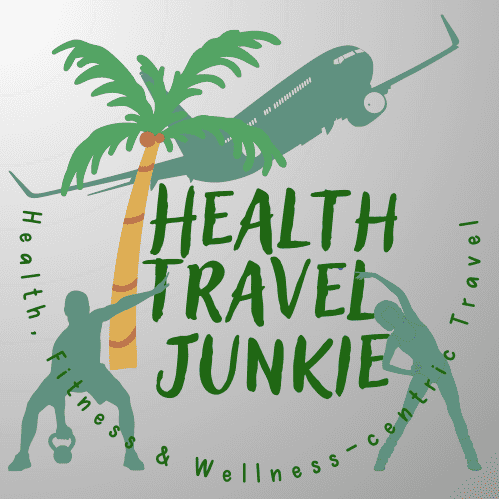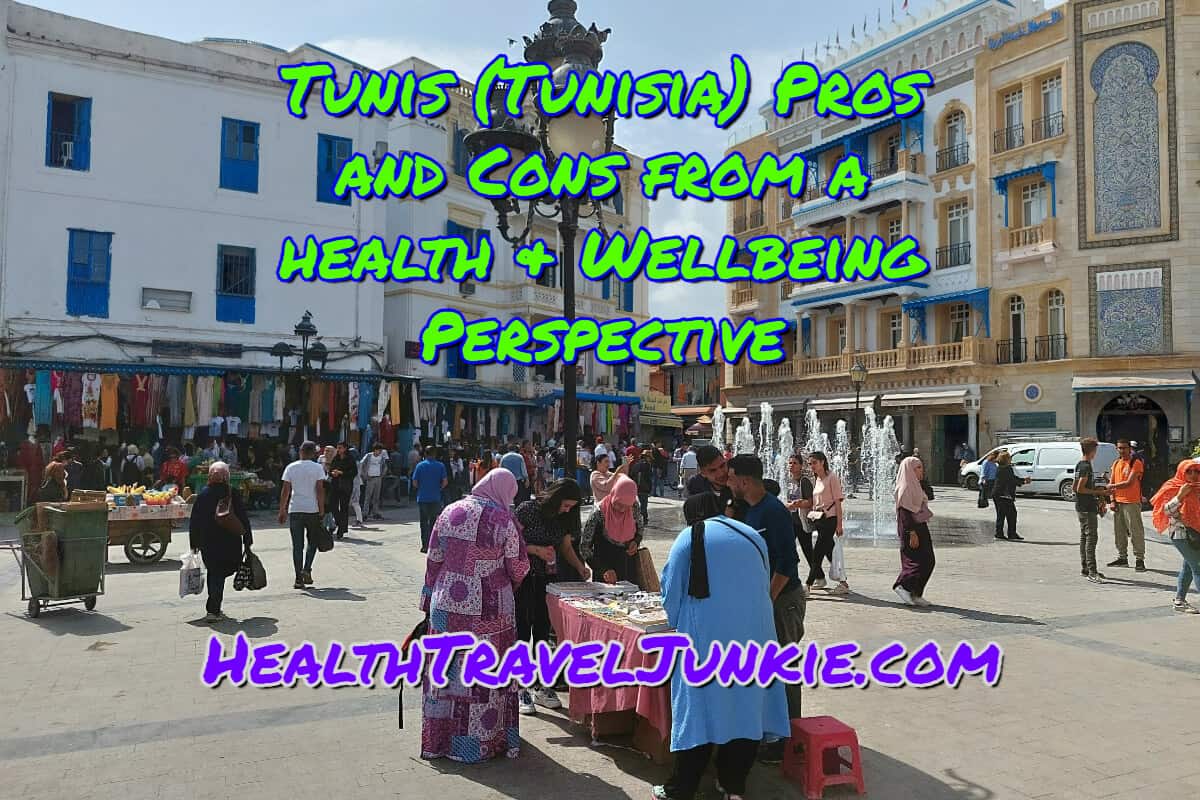Tunis (capital of Tunisia) is close to Europe. Yet its also a world apart with its Arabic food and culture. Tunis has European-looking neighborhoods like Gammarth and La Marsa, but also African 3rd world poverty in other pockets of the city. I see it more as Arabia, than Africa.
Anyway, ’twas pleasant visiting Tunis for a week – the most Northern country of Africa. Let’s consider the pros and cons of this North African city from a health perspective.
Pros of Tunis (Tunisia)
- Some areas like the Tunis Medina are easily walkable for tourists. Buy a few souvenirs, get Tunisian snacks. This is one of the main tourist attractions in Tunis.
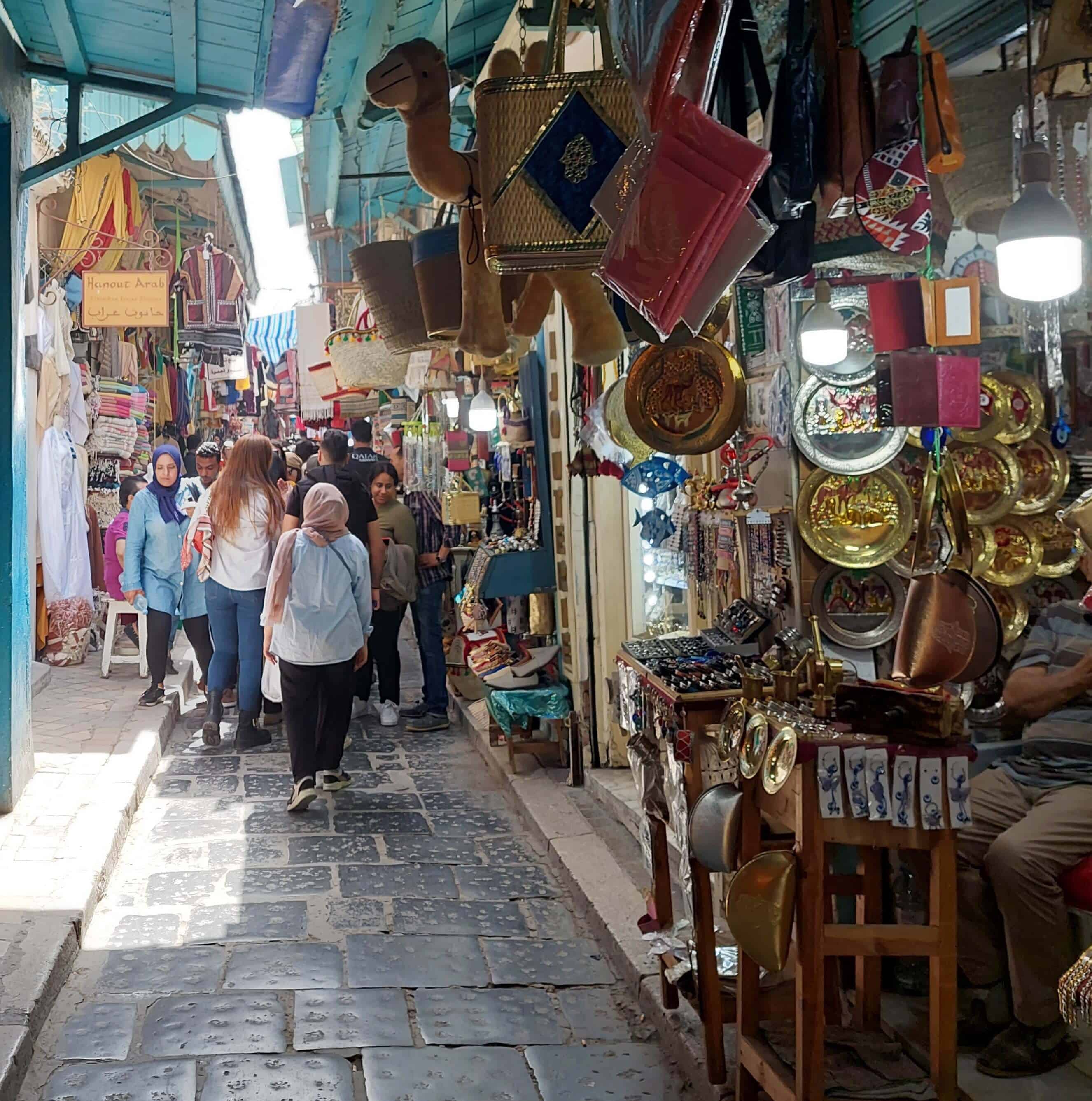
- Good gym options are available. In La Marsa, Oxygene is a great gym with reasonable daypass. It’s better than California gym which was 50% more expensive for less space and equipment.
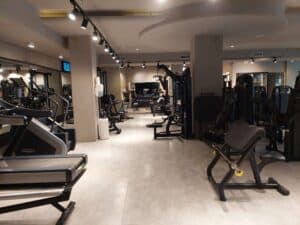
- Some of the upmarket restaurants have great healthy food, and its not too expensive.
- Try for example Ojja. This is a Tunisian version of Middle-eastern Shakshuka – an Egg and Tomato-based dish you’re not likely to forget easily. Below is Seafood Ojja at La Cojina in La Marsa (In French: Ojja au Fruit de Mer).
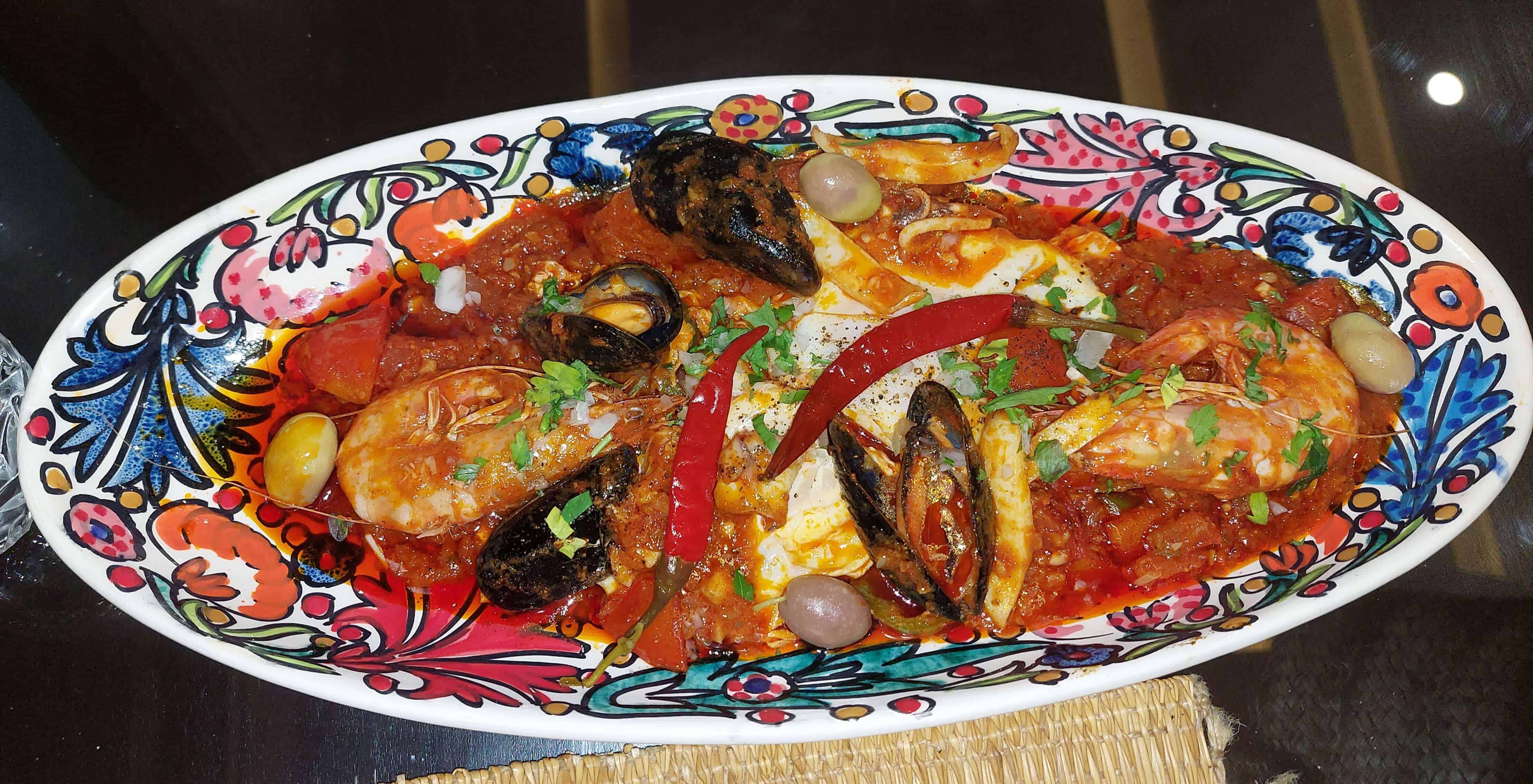
- Otherwise Couscous with vegetables and fish balls at L’Arbre a Couscous (The Couscous Tree) in La Marsa.
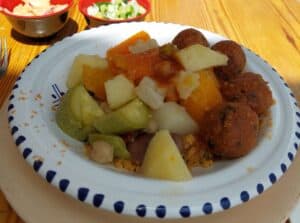
- Its safe to go running or walking outside in most areas of Tunis. Though my hostel advised to avoid walking or running outside after midnight (Nomads Hostel – book here).
- Bolt taxi app is a great way of getting around. You can’t take this for granted. As I was recently in Macedonia, and they don’t have any taxi apps. But in Tunisia, Bolt is great. Yellow taxis are also safe to use as they have meters. Avoid the airport white taxis – they over-charge, scam and don’t have meters.
- Youth hostels are available for accommodation, along with the airbnb’s and hotels.
- Tuna soaked in olive oil, either in tins or glass jars, is a cheap (but high quality) supermarket protein option.
- Supermarkets have decent fruit and veg sections. You’ll get your apricots, bananas, oranges, but not massive variety.
- The Tunis Municipal Market is good for budget fruits, vegetables, spices, dates, olives and such items.
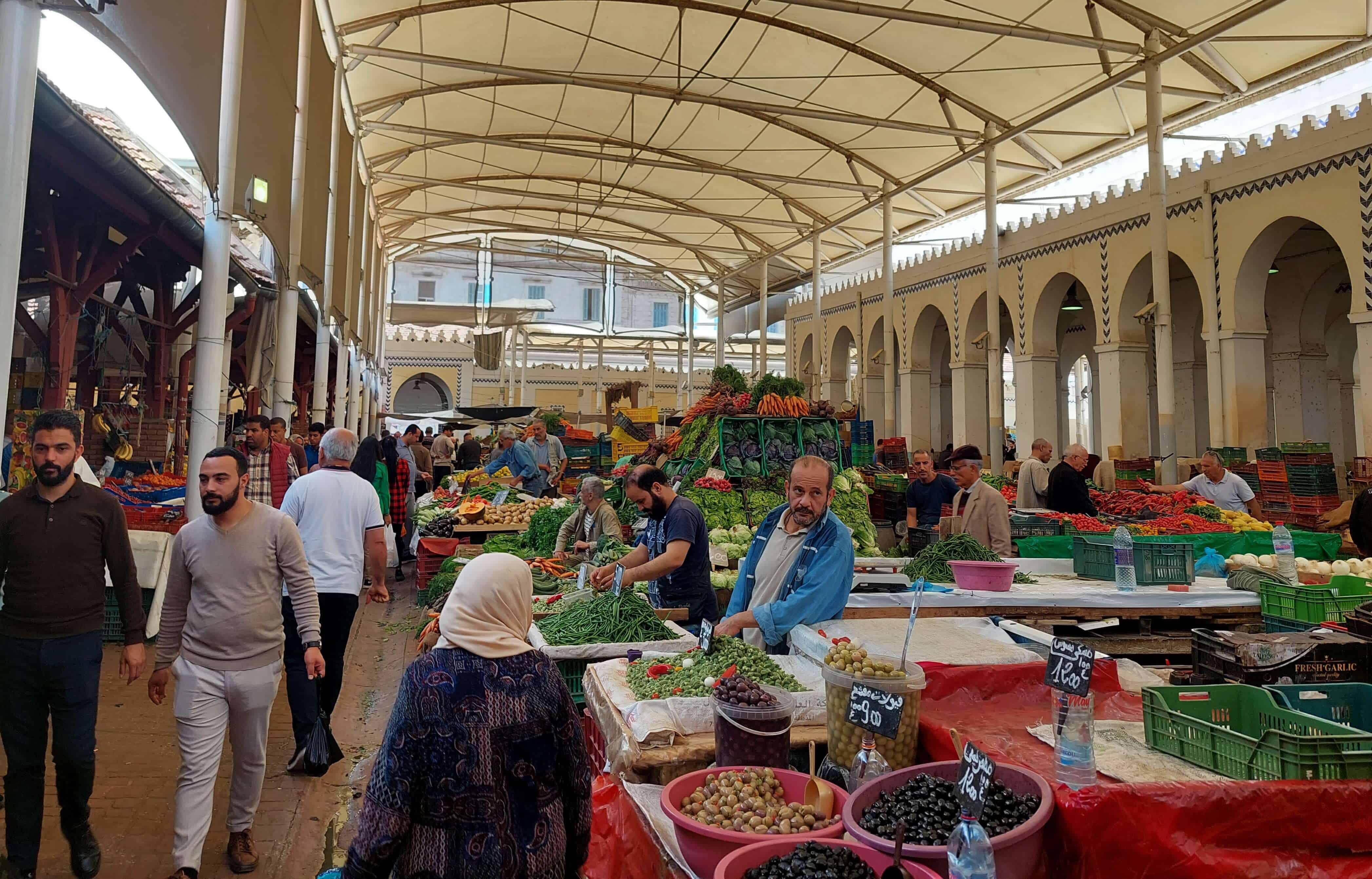
- There are Yoga options in the city, e.g. YogaLab, Houdou Yoga Space, FitYogaProf.
- If you speak English and/or French, its easy enough to communicate. Although French is much more popular than English, as its an official language. Arabic is the other official language.
- Tunis has a reasonably open-minded culture. Although Tunisia is Islamic, its not like Saudi Arabia where the women all wear black burkhas and the men white robes. In fact 99% of Tunisian women don’t wear black burkhas. While zero Tunisian men walk around with white robes. The married women do wear colorful headscarves.
- It’s a friendly welcoming culture to tourists. They’ve had their fair share of problems with terrorist attacks many years ago. Terrorism is likely not the desire of 98% of Tunisians. Since generally, they know the economic value of tourism. But Islamic extremists did great harm to the country’s tourism sector. This lead to further impoverishment of all Tunisians. The communist, anti-science “covid lockdowns” also damaged Tunisia’s tourism sector, which is now slowly recovering.
- There are Great beaches e.g. in La Marsa. Although tanning with a thong is definitely not recommended in Arabic countries, there were some tourist girls in regular bikinis, which didn’t seem to be a problem at all. Plus, go for a stroll on the scenic promenade at La Marsa.
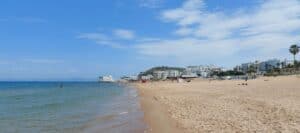
- La Gammarth is the enclave of the expats and the wealthiest Tunisians. Here you’ll find clean decent Western food if you’re willing to pay premium prices. Its also the drinking area, deliberately far away from downtown Tunis. Plus, there’s the five star hotels for big spenders. It’s only reachable by private car or taxi.

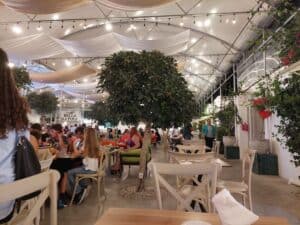
- There are a handful of very decent tourist attractions in Tunis, such as the blue and white houses and shops of Sidi Bou Said.
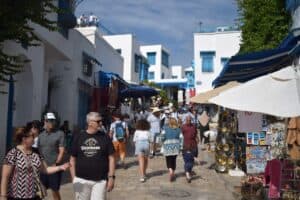
- Tunis is easy to reach by plane for a quick trip. I flew into Tunis via Turkish Airlines (Istanbul). Then left to Nice (France) on a cheap flight via Tunisian Airlines. I also considered the ferry to Palermo in Italy. However, there’s a lot of bad reviews for the ferries, and it takes 20 times longer than a flight.
Cons of Tunis (Tunisia)
- The regular, cheap restaurants have tons of chemicals in their food and sauces.
- Shawarma plate is a typical Tunisian dish. It kills the hunger and tastes great. You get a massive plate at cheap price. However, the sauces and spices are full of toxins like MSG, preservatives, high-sodium, etc. Thus, Tunisian Shawarma Plate is not healthy.
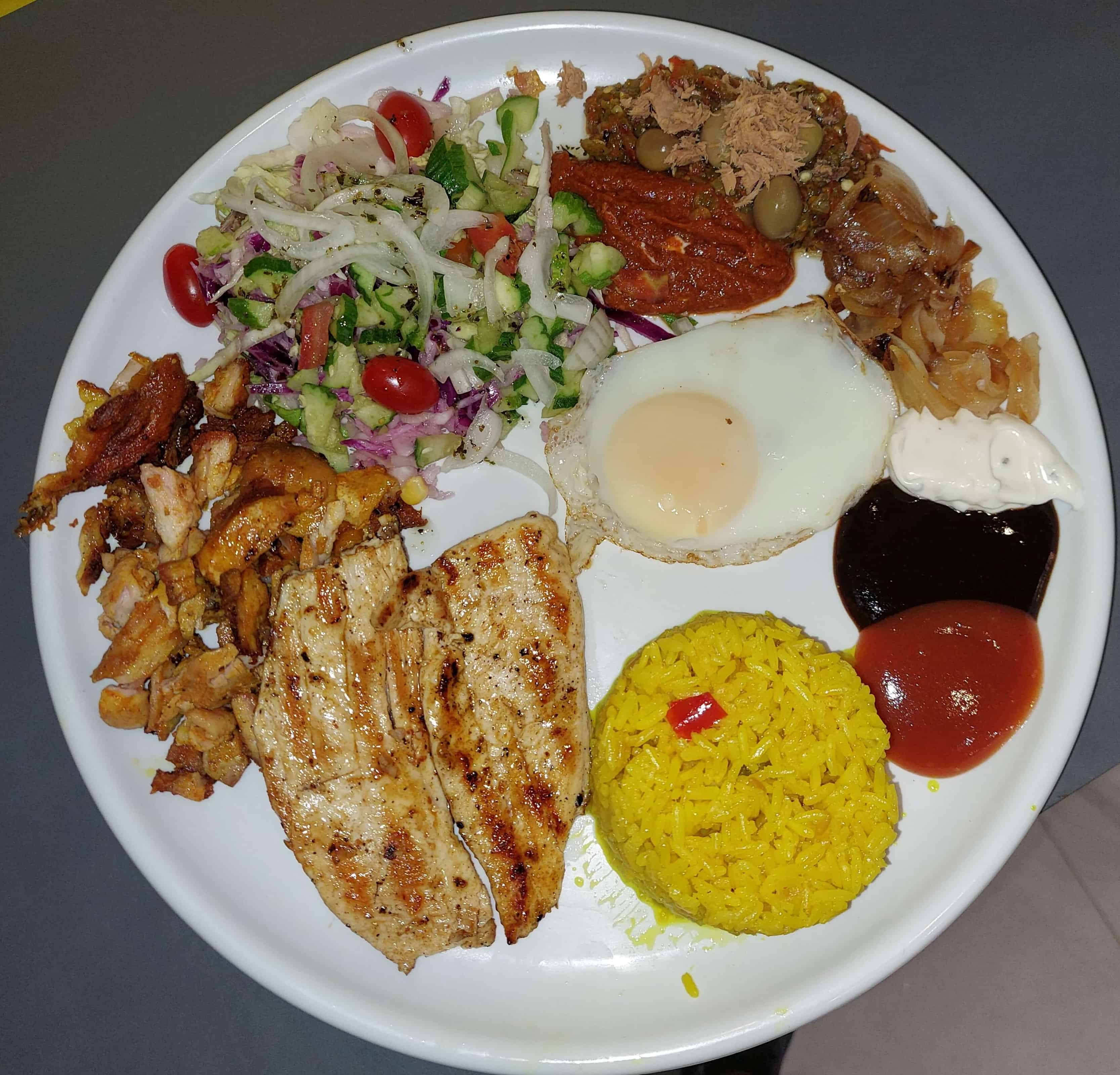
- Shawarma Roll with chips. Got this on my first night after arriving via plane. The hostel recommended it, and I was hungry. It’s the same problem as the shawarma plate. Filling – hell yes. Healthy: Hello no. Chemical sauce, deep fried chips. Yet so easy to adapt and make healthier. But don’t tell that to Tunisians, they’ll frown back at ya.
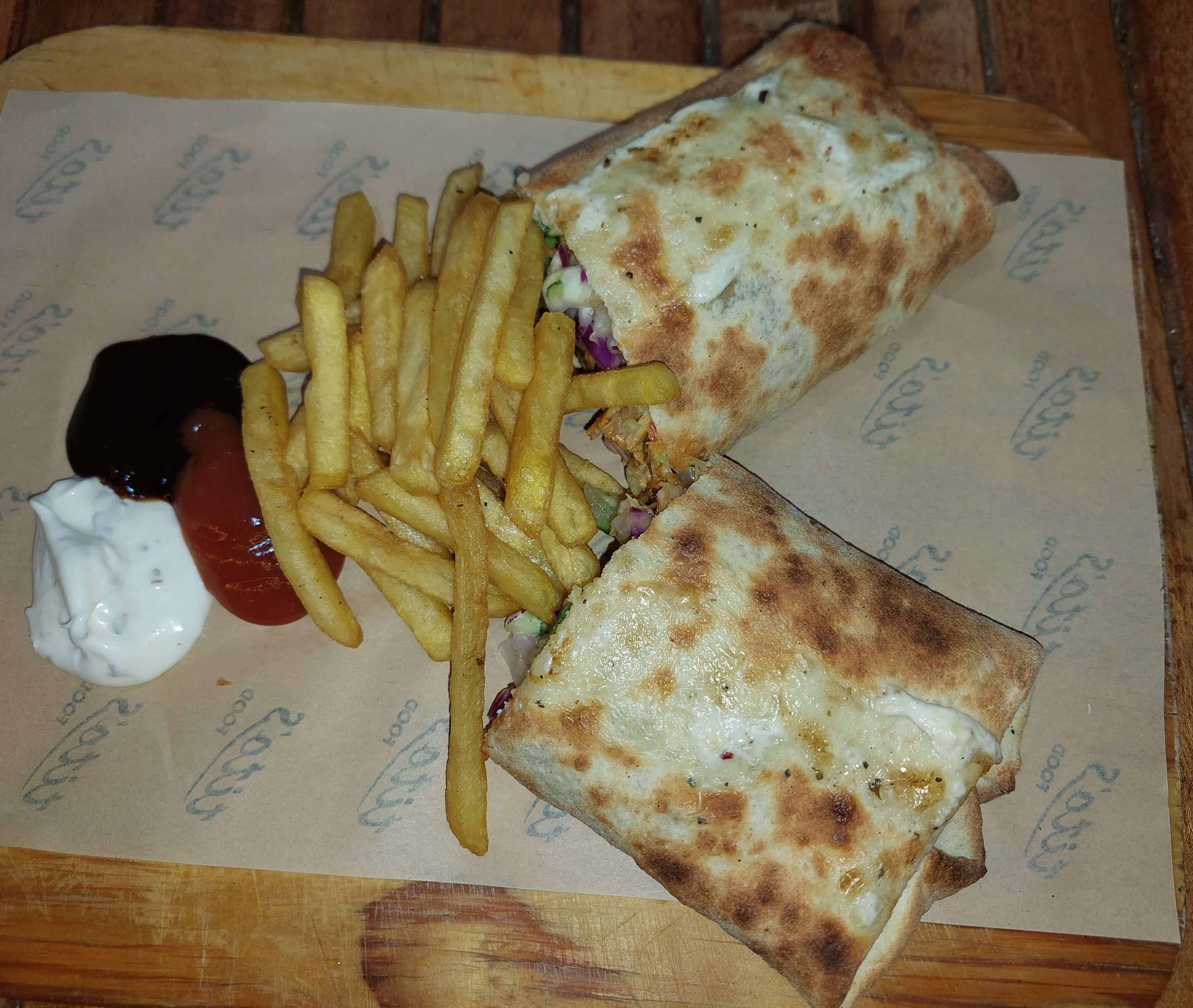
- There aren’t many healthy options in the supermarkets. For example, although you find yoghurt, you won’t find organic yoghurt, kefir, lactose free yoghurt, nor non-dairy yoghurt, etc.
- Its easy to get scammed by airport white taxis when you arrive. Opt for the yellow taxis or Bolt.
- The hostel was backwards as they didn’t even have a room fan to blow some cool air at night during the Summer. Plus, to help blow the mosquitos away. Fans cost as little as 50 Dinar at the local supermarkets, thus they didn’t have an excuse. Otherwise, the hostel owners were upmarket and friendly Tunisians (Nomads Hostel – book here).
- In Tunis it can be tricky to find the healthier, cleaner and upmarket Tunisian restaurants. But in La Marsa, a wealthy suburb of Tunis, its easier.
- Apart from working out and fitness, they don’t really have that Western European clean-ingredient and health-aware culture. You are what you eat. But in Tunis, you often still eat chemical sh#t food, leading to a less healthy and more obese population.
- Public transport isn’t as great between the different towns, as it is in Europe. However, there are ways to do it with some research. I didn’t feel like immersing much deeper in Tunisia, as the lack of health-aware culture with the local food is off-putting.
- White bread nation. There are very few wholewheat bread options except in some supermarkets. They also give white bread with the Ojja and other meals at the restaurants. It’s always unhealthy white bread. Tunisia is thus still a little backwards with health.
- It’s hard to find a healthy smoothie. Something like a magic bullet smoothie blender would’ve been useful in Tunis.
Conclusion – Pros & Cons of Tunis
As a rule of thumb, Emergency Travel Medical Insurance is always recommended. However, proactive health and wellbeing is more about clean diet and lifestyle, than medical doctors and hospitals. Thus, it’s best to take above pros and cons into account to keep fit and healthy during your next visit to Tunisia.
Tunis is not the worst place in the world to live. Especially if you’re close to the Promenade at La Marsa. But its also not the best, as its not as developed and first world as Europe.
If you work out at the gym, eat healthy, source fresh fruit and vegetables from the market, make your own meals where you can, it can be a low-stress and relaxed lifestyle. Especially since Tunisia is not as densely populated. More open space, less congestion.
Rent a car and plan out your trip to also see the rest of Tunisia. Look up a few healthier restaurants ahead of time in each town you plan to visit. And have a great trip.
Have you been to Tunis? What’s your view on keeping fit and healthy in this part of the world. Comment below your questions and tips for other readers!
